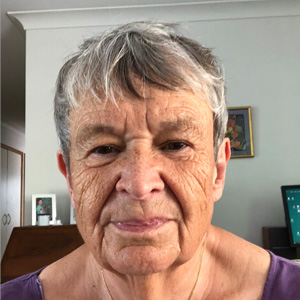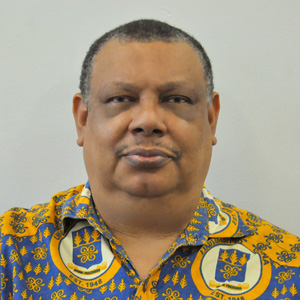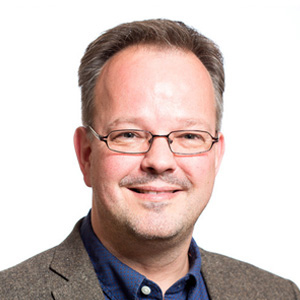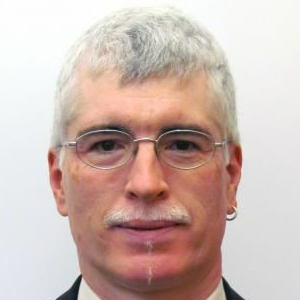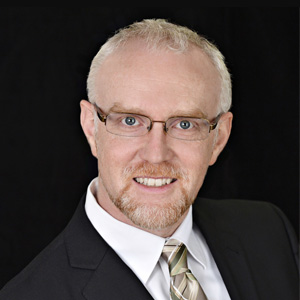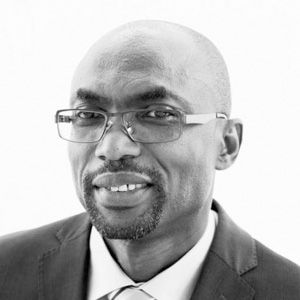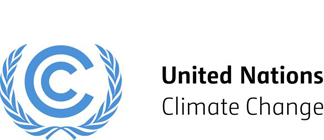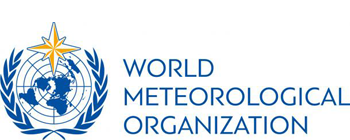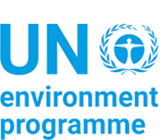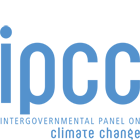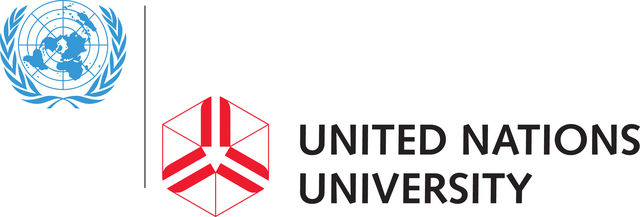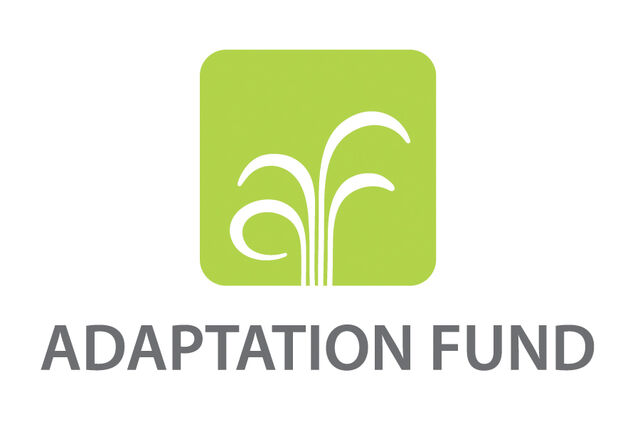Christina Chan
World Resources Institute (WRI)

Ms Christina Chan is the Director of the Climate Resilience Practice at the World Resources Institute, and Co-Director of the Global Commission on Adaptation. She leads an exceptional team of adaptation professions who support communities and policymakers in understanding climate risks and vulnerabilities, as well as what works and why; integrating adaptation into policies and programs; and accessing financial resources. Prior to joining WRI, Christina was a Branch Chief at the U.S. State Department’s climate change office, where she led U.S. government efforts on global adaptation policy, launched several major adaptation partnerships, including the Adaptation Partnership and the National Adaptation Plan Global Network, and provided leadership on adaptation on the UNFCCC’s Adaptation Committee and Executive Committee to the Warsaw International Mechanism on Loss and Damage. Christina also spent eight years with CARE, helping communities reduce their disaster-related risks and leveraging CARE’s on-the-ground work with communities to inform CARE International’s policy advocacy with the U.S. and global climate change policy. Christina holds a graduate degree in Urban and Regional Planning from Cornell University and an undergraduate degree in Human Biology from Stanford University.
Jean Palutikof
Griffith University
Ms. Jean Palutikof is a Professor in the National Climate Change Adaptation Research Facility, Griffith University, Australia, where she has worked since October 2008. Previously, she managed production of the Intergovernmental Panel on Climate Change (IPCC) Fourth Assessment Report for Working Group II (Impacts, Adaptation and Vulnerability), while based at the UK Met Office. From 1979 to 2004 she worked at the University of East Anglia, UK, becoming a Professor in the School of Environmental Sciences, and Director of the Climatic Research Unit. Her research interests focus on climate change impacts and adaptation, and communication of knowledge to adaptation decision-makers. Ms. Palutikof is a founding member of the WASP and served the programme as co-chair of its Science Committee during 2018-2020 and served as a member of the Science Committee during 2020-2022.
Chris Gordon
University of Ghana
Mr. Chris Gordon is a limnologist and ecologist based at the University of Ghana’s Institute for Environment and Sanitation Studies. He has many years of experience as a consultant and aquatic resource management advisor with in-depth and extensive knowledge of ecosystem functioning and ecology of coastal wetlands, large river and estuarine systems. Prof Gordon has provided guidance on various national climate-related policies, strategies and action plans that include the National Climate Change Policy (2014); Intended Nationally Determined Contributions, Paris Agreement on Climate Change (2015); National Climate Change Master Plan (2015); National Climate Change and Green Economy Learning Strategy (2017). Mr. Gordon is a founding member of the WASP and served as a member of the Science Committee during 2018-2022.
Richard Klein
Stockholm Environment Institute
Mr. Richard Klein (Stockholm Environment Institute, Bonn, Germany) has more than 25 years of experience in original research, science assessment and policy advice on climate change adaptation. He has been a lead author or coordinating lead author in six IPCC reports, and co-directed the Nordic Centre of Excellence for Strategic Adaptation Research in 2011–2016. Richard founded the journal Climate and Development in 2009 and served as its editor-in-chief for 10 years. In 2016 he received the Burtoni Award in recognition of his work on climate adaptation. Mr. Klein is a founding member of the WASP and was a member of the scientific steering committee of PROVIA from 2010 to 2015, then served the programme as co-chair of its Science Committee during 2018-2020 and served as a member of the Science Committee during 2020-2022.
Maxx Dilley
The World Meteorological Organization (WMO)
Mr. Maxx Dilley is the Director of the Climate Programme and the Climate Coordinator and the Deputy Director of Services at WMO. Prior to joining WMO, he was a Policy and Partnerships Advisor at the United Nations Development Programme (UNDP) and led the UNDP Disaster Risk Reduction and Recovery Team. Before that, he was a Research Scientist in the International Research Institute for Climate and Society (IRI) at Columbia University in New York, where he directed the Africa program and co-directed climate impacts research. He has designed, managed and contributed to disaster and risk management programs in Africa, Latin America and Asia and has authored numerous papers on disaster reduction and climate-related topics. Mr.Dilley is a founding member of the WASP and served the programme as a member of the Management Group, representing WMO, between 2018-2022.
Bruce Currie-Alder
International Development Research Centre (IDRC)
Mr Bruce Currie-Alder leads the climate team at Canada's International Development Research Centre (IDRC) which invests in evidence to catalyze adaptation and resilience across Africa, Asia, and Latin America. IDRC is proud to partner with the UK Government to enable poor and marginalised communities in the global South to be more resilient to climate change in the near and longer term, and with the Government of the Netherlands to support the Climate and Development Knowledge Network (CDKN). Bruce previously led the Collaborative Research Initiative in Africa and Asia (CARIAA) and served as IDRC’s director for the Middle East and North Africa. Bruce served as the co-chair of the Policy and Finance Committee of the WASP between 2019 and 2022.
Prof. Saleemul Huq
International Centre for Climate Change and Development (ICCCAD)
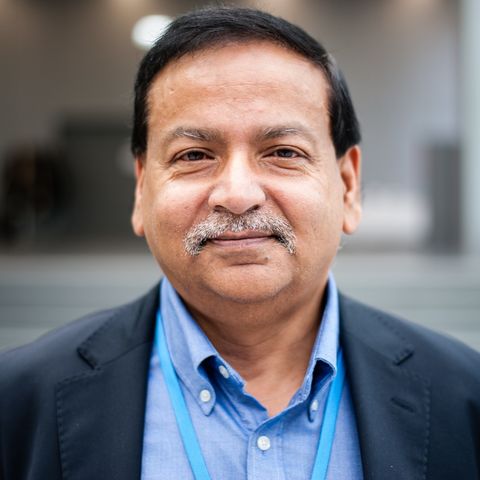
Prof. Saleemul Huq (1952 - 2023) was Director of the International Centre for Climate Change and Development (ICCCAD), a Professor at the Independent University Bangladesh (IUB), as well as Associate of the International Institute on Environment and Development (IIED) in the United Kingdom. In addition, he was the Chair of the Expert Advisory Group for the Climate Vulnerable Forum (CVF) under the UNFCCC. He was named as one of the top ten scientists of 2022 by the scientific journal Nature.Saleem has been a lead author of the third, fourth and fifth assessment reports of the Intergovernmental Panel on Climate Change (IPCC). He also actively engaged as an adviser on adaptation, loss and damage and climate finance to the Least Developed Countries (LDC) group in the UNFCCC and provided training to LDC negotiators. In addition, he served as an author on various editions of the WASP-supported and UNEP-led Adaptation Gap Report. In August 2023 he was appointed as one of the external members of the UN's Scientific Advisory Board. Prof. Huq was one of the Founders of the WASP, a member of the Policy & Finance Committee, and a member of the WASP Working Group on Loss and Damage.
Masataka Watanabe
Chuo University
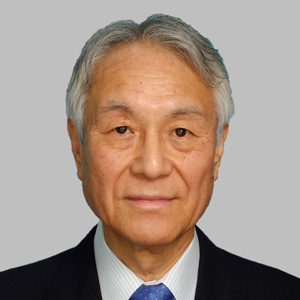
Mr Masataka Watanabe is a professor at the Research and Development Initiative, Chuo University in Japan and also is serving as a chairman of the UNEP-Global Adaptation Network. He participated to the Sub-Global Assessment of UN Millennium Ecosystem Assessment (MA), in particular, the evaluation of ecosystem services in Changjiang (Yangtze) river basin including the estuary in the “Western China Ecosystem Assessment". He is currently developing the GCF project on “Resilience Building and Solution to Zud in Mongolia” which includes the implementation of adaptation measures to zud (massive loss of livestock due to extreme weather in winter under the climate change in Mongolia) such as (1)development of zud early warning system, (2)early harvesting and maintenance of carrying capacity, (3)development of meat freezing storage system driven by solar PV, (4)economic analysis of taxation on livestock number. He is leading the project on Metrics and Validation of GHG Emission/Absorption in Mongolia using satellite data of GOSAT which helps for many countries, non-Annex I parties in particular, on biennial reports of the GHG inventory and Global stocktake in 2023 and 2028. He received B.E. /M.E. from Kyoto University and received a Ph.D. from MIT. He has authored more than 120 peer-reviewed international journal articles.
Pa Ousman Jarju
Green Climate Fund (GCF)
Mr Pa Ousman Jarju was Director of GCF's Country Programming Division, prior to his retirement. Formerly, he was the Gambian Minister of Environment, Climate Change and Natural Resources and Chair of the Least Developed Countries (LDC) Group to the United Nations Framework Convention on Climate Change (UNFCCC). Pa Ousman was Special Climate Change Envoy of the Gambia and has extensive diplomatic experience across the 47 LDCs, China, the United States and the European Union. He has gained wide-ranging managerial experience in the Gambia's Department of Water Resources as its Director and then overseeing Minister. Pa Ousman holds advanced diplomas from the Institute of Commercial Management (UK) and the IHE Institute for Water Education (the Netherlands), as well as a Bachelor of Engineering in Chemical Engineering.

